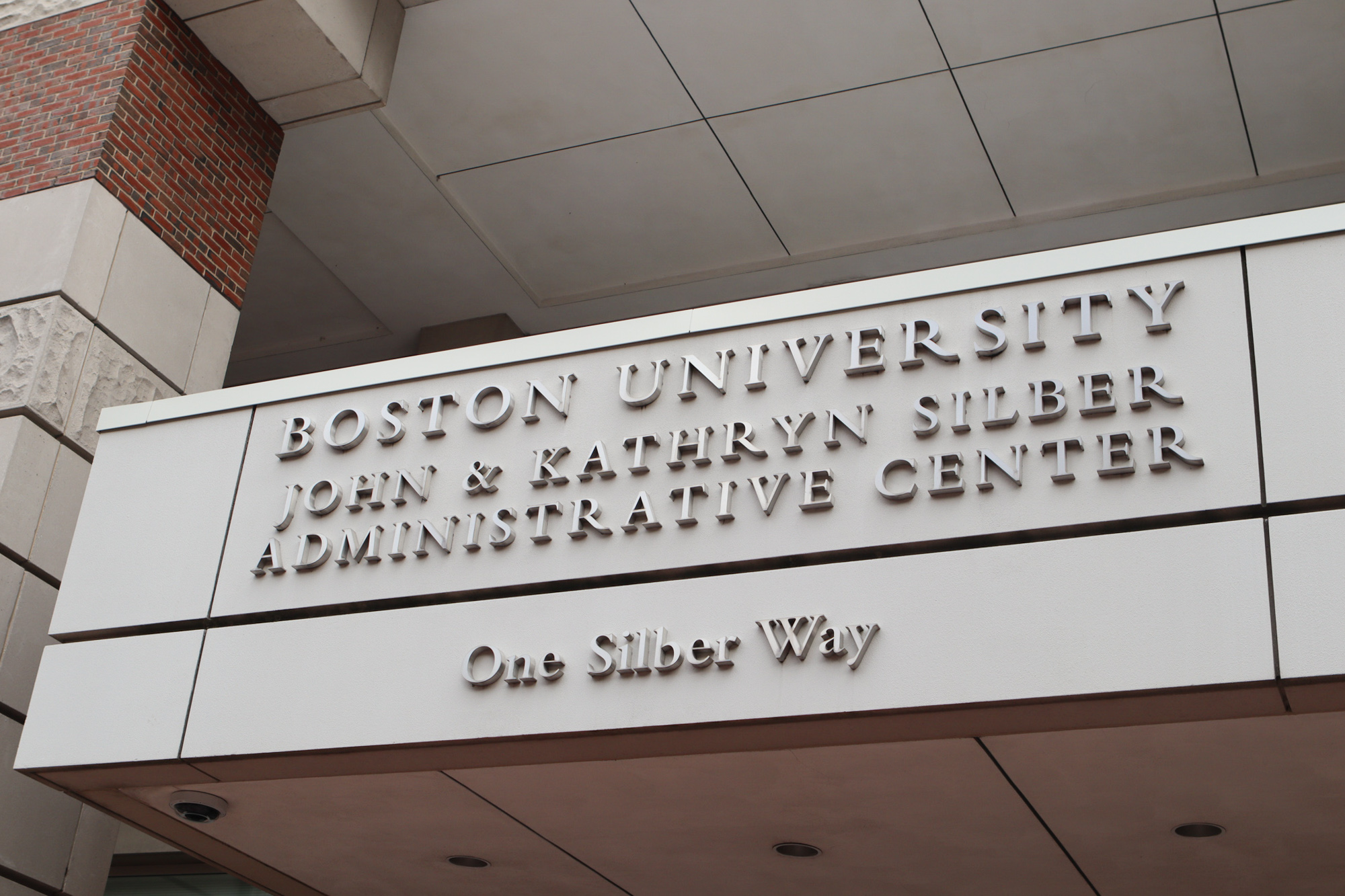Boston University President Melissa Gilliam announced in a letter to BU faculty and staff March 26 the University would no longer give annual merit increases this year, in an effort to support BU’s financial health.

The letter, titled “Steps to Support BU’s Financial Health,” states the University’s reserves, portions of its budget intended for planned strategic investments, have dropped since the fiscal year 2022 and they are expected to decline further.
“These reserves are critical to sustaining the University’s competitive position and maintaining the quality of our academic and research programs,” Gilliam wrote.
Gilliam references inflation, a decline in masters degree enrollments, increased wages and salaries, the upcoming graduation of one of the “largest” BU classes and the stabilization of the Student Information System as primary reasons for the University’s decline in reserves.
The letter assures faculty that BU remains confident in its mission and will continue working on its budget and strategy.
“While these times are challenging, we cannot retreat,” Gilliam wrote. “If we are to continue leading in research, scholarship, teaching, learning, and service, we must take this moment to rethink how we operate, allowing us to achieve even greater success.”
Members of UAW Local 2324, a union representing higher education staff at BU, voiced concerns of inequity on the subject.
Scott Marr, a social sciences senior lecturer in the College of General Studies, said merit increases are a key factor in faculty salaries keeping up with inflation.
He said the term “merit increase” disguises what the raises actually are: a “cost of living increase.”
“It does serve as a meritorious reward for certain faculty who excel at either scholarship and teaching or in service to the University,” Marr said. “But first and foremost, it’s a cost of living increase. It’s how our salaries keep pace with general inflation.”
UAW Local 2324 President Zachary Bos said BU has a “contractual legal obligation to the unions” that includes informing them of changes in working conditions, such as merit increase cancellations.
“For the University to announce this huge change in working conditions without notifying the unions first, without bringing them to the table and discussing the operational and financial matters that led to this decision, is highly troubling,” Bos said.
Additionally, Bos raised concerns in a memo sent to union members Thursday about the impacts of inflation on the salaries of the union’s 440 workers.
Average wages for union members shifted from $24.76 to $27.58 between 2021 and 2025, marking an 11.39% increase over 4 years, according to the memo. However, the total inflation rate over that period was 19.3%.
The memo says workers’ average pay would be $29.53 had pay levels “kept pace with inflation.”
“The University knows what it would take to be a competitive employer, it knows what fair wages look like and it knows what it would have to pay workers in order for them to keep stable households in the Boston area,” Bos said. “In light of all this knowledge, it simply refuses to do so.”
David Lyons, former BU law professor and an original founding member of the union, said “a lot of people are not going to get any increases at all.”
“There’s inflation, and academic salaries generally do not keep up with inflation,” Lyons said.
BU Spokesperson Colin Riley said merit increases are part of the University’s biggest expense.
“We’re a very well-managed school,” Riley said. “With the president’s leadership and her team working to address this and communicate with all the deans and the department heads and the administrative units on how to slow the rate of spending, we’ll get through this.”
Union members expressed skepticism about the effects of BU’s spending on employees. The University recently approved plans to construct a new building for the Pardee School of Global Studies.
“The cost of constructing the new Pardee School of Global Studies is expected to exceed $118 million—more than 75 times the cost of giving our workers an equitable raise” Bos’ memo said.
Marr said the Student Information System is another strain on the University’s budget that is “within BU’s control.”
“It can’t be held together, and that’s a tough reason to ask faculty to go without a raise, because [BU] bought a lemon, and it takes over a million dollars a year to just keep it running,” Marr said.




















































































































